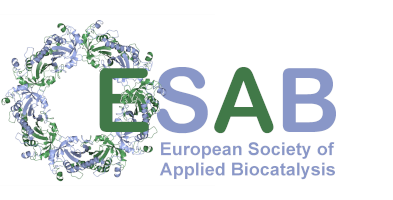Capillary Electrophoresis-Based Enzyme Assays
Abstract
Enzymes catalyze biochemical reactions in living cells. They may be implicated in human diseases and, therefore, represent important targets for the development of pharmaceutical drugs. For mechanistic studies of enzymatic reactions as well as the screening of potential enzyme inhibitors or activators suitable analytical techniques must be available. In recent years, capillary electrophoresis (CE) has become a frequently used tool for enzyme assays due to its well-recognized advantages such as high separation efficiency, short analysis time, small sample and chemicals consumption. The published applications cover all aspects of enzyme characterization and analysis including the determination of the enzyme activity, substrate and modulator characterization and identification, as well as the investigation of enzyme-mediated metabolic pathways of bioactive molecules. The CE assays may be classified into two general categories: (1) pre-capillary assays where the reactions are performed offline followed by CE analysis of the substrates and products and (2) online assays also when the enzyme reaction and separation of the analytes are performed in the same capillary which is also referred to as electrophoretically mediated microanalysis (EMMA).
About the Speaker(s)
 Prof. Dr. Gerhard K. E. Scriba is a full professor at the Department of Medicinal/Pharmaceutical Chemistry at the Friedrich Schiller University Jena, Germany. He studied Pharmacy at the University of Bonn and received his Ph.D. in 1984 from the University of Münster. Between 1986 and 1988 he worked as a postdoctoral research associate at the Department of Pharmaceutical Chemistry of the University of Kansas, Lawrence, Kansas, USA, before returning to the University of Münster where he finished his habilitation in 1995. Since 1999 he holds his current position at the University of Jena where he served as head of the School of Pharmacy from 2005 to 2013 and as Dean of Study Affairs of the Faculty of Biological Sciences from 2010 to 2013. He received the Rottendorf-Prize for Pharmaceutical Sciencesin 1995 and the Johann-Wolfgang-Döbereiner-Prize of the German Pharmaceutical Association in 1997. Prof. Scriba has published over 195 research & review papers and 25 book chapters. He is editor of the book Chiral Separations (2nd and 3rd edition) and co-editor of the journal Chromatographia. Furthermore, he is and a member of the editorial boards of the journals Electrophoresis, Journal of Separation Science and Journal of Pharmaceutical and Biomedical Analysis and regularly serves as guest editor of the paper symposia "Pharmaceutical Analysis" of Electrophoresis. Prof. Scriba is the chair-person of the working group Pharmaceutical Chemistry of the German Pharmacopoeia, a member of the scientific commission of the German Drug Codex (DAC), am member of WHO Expert Advisory Panel on The International Pharmacopoeia and an advisor for the WHO Expert Committee on Specifications for Pharmaceutical Preparations. Between 2007 and 2016 he served as a member of the Scientific Advisory Board of the German Federal Institute for Drugs and Medical Devices (BfArM). The research focuses on the analysis of drugs and peptides including stereoisomer analysis by capillary electrophoresis and HPLC as well as mechanistic studies on the interaction between selectors and solutes. A further research topic covers capillary electrophoresis-based enzyme assays.
Prof. Dr. Gerhard K. E. Scriba is a full professor at the Department of Medicinal/Pharmaceutical Chemistry at the Friedrich Schiller University Jena, Germany. He studied Pharmacy at the University of Bonn and received his Ph.D. in 1984 from the University of Münster. Between 1986 and 1988 he worked as a postdoctoral research associate at the Department of Pharmaceutical Chemistry of the University of Kansas, Lawrence, Kansas, USA, before returning to the University of Münster where he finished his habilitation in 1995. Since 1999 he holds his current position at the University of Jena where he served as head of the School of Pharmacy from 2005 to 2013 and as Dean of Study Affairs of the Faculty of Biological Sciences from 2010 to 2013. He received the Rottendorf-Prize for Pharmaceutical Sciencesin 1995 and the Johann-Wolfgang-Döbereiner-Prize of the German Pharmaceutical Association in 1997. Prof. Scriba has published over 195 research & review papers and 25 book chapters. He is editor of the book Chiral Separations (2nd and 3rd edition) and co-editor of the journal Chromatographia. Furthermore, he is and a member of the editorial boards of the journals Electrophoresis, Journal of Separation Science and Journal of Pharmaceutical and Biomedical Analysis and regularly serves as guest editor of the paper symposia "Pharmaceutical Analysis" of Electrophoresis. Prof. Scriba is the chair-person of the working group Pharmaceutical Chemistry of the German Pharmacopoeia, a member of the scientific commission of the German Drug Codex (DAC), am member of WHO Expert Advisory Panel on The International Pharmacopoeia and an advisor for the WHO Expert Committee on Specifications for Pharmaceutical Preparations. Between 2007 and 2016 he served as a member of the Scientific Advisory Board of the German Federal Institute for Drugs and Medical Devices (BfArM). The research focuses on the analysis of drugs and peptides including stereoisomer analysis by capillary electrophoresis and HPLC as well as mechanistic studies on the interaction between selectors and solutes. A further research topic covers capillary electrophoresis-based enzyme assays.
